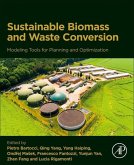
Gebundenes Buch
A Journey Through History
30. Juni 2025
Royal Collins Publishing Company
Ähnliche Artikel

Broschiertes Buch
Emerging Technologies, New Tools, and Case Studies
24. Januar 2025
Elsevier Science

Broschiertes Buch
Principles and Methods
18. Januar 2024
Elsevier Science

Broschiertes Buch
18. November 2024
Elsevier Science

Broschiertes Buch
19. August 2024
Elsevier Science



Broschiertes Buch
Optimization of Technical, Economic, Environmental and Social Key Aspects
1. März 2024
Elsevier Science

Broschiertes Buch
Value Chain, Sustainability, and Challenges
19. September 2023
Elsevier Science

Broschiertes Buch
22. Januar 2024
Elsevier Science

Broschiertes Buch
13. November 2024
Elsevier Science
Ähnlichkeitssuche: Fact®Finder von OMIKRON

